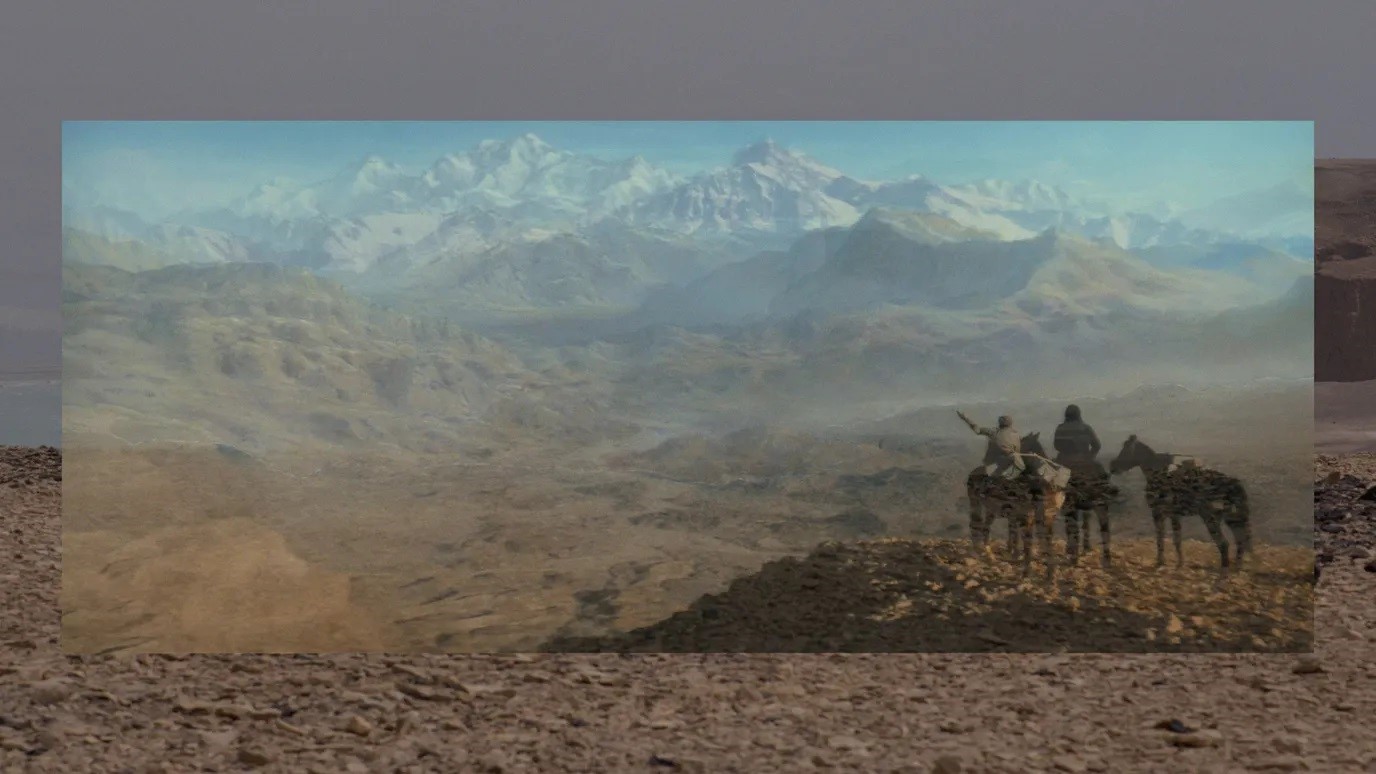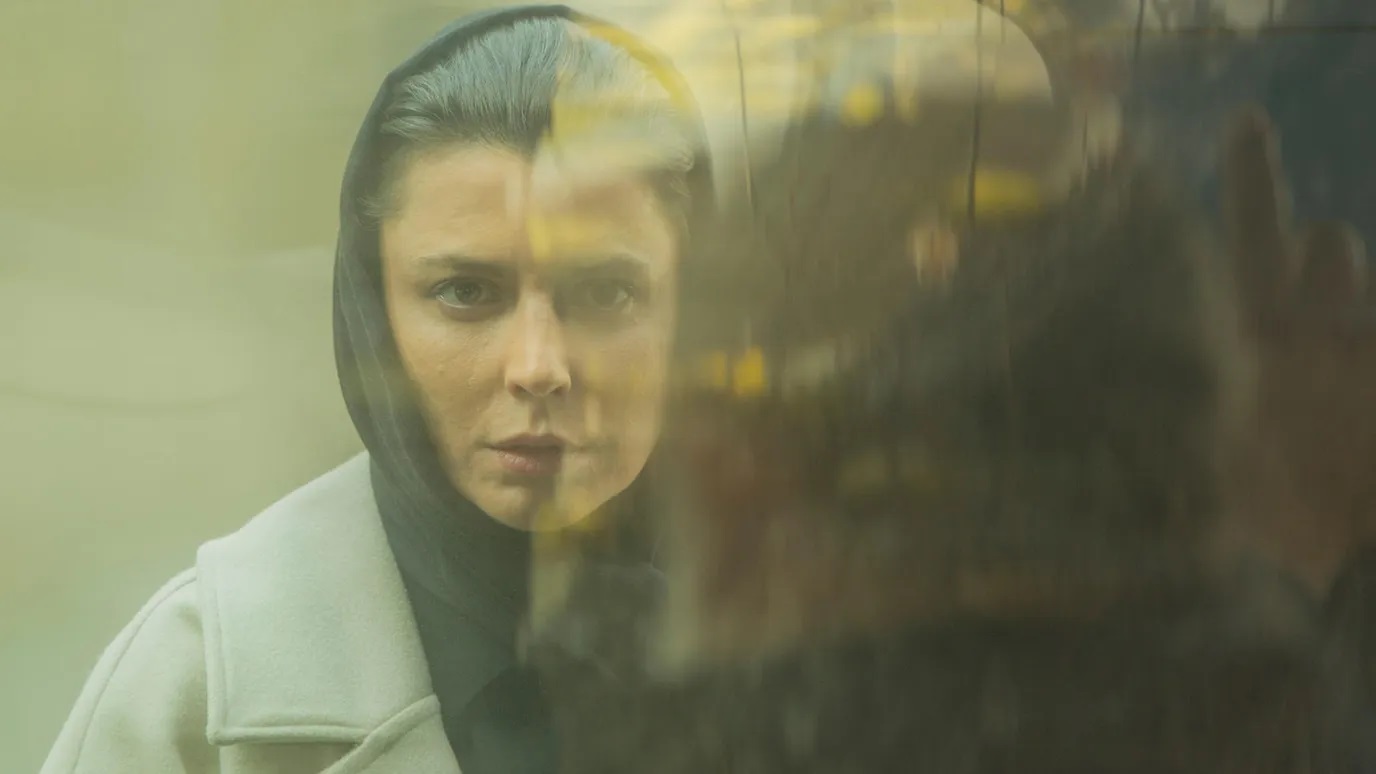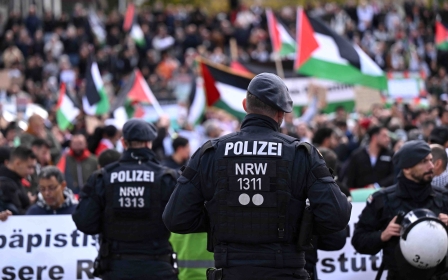Rotterdam film festival: Rambo in the Negev, a never-seen Iran and a post-apocalyptic Beirut

It’s been a bumpy ride for the film festival scene after 7 October. Unlike insular American and British awards ceremonies where commenting on the ongoing crisis in Gaza is deemed a faux pas, film festivals – where politics is integral – cannot evade the region’s turmoil.
Orwa Nyrabia, the Syrian artistic director of the International Documentary Film Festival Amsterdam (IDFA), found himself in hot water last November for applauding three pro-Palestinian demonstrators who interrupted the fest’s opening ceremony by chanting “From the River to the Sea, Palestine Will Be Free.” He was forced to make a public apology the next day.
Saudi Arabia’s Red Sea Film Fest banned the Palestinian keffiyeh and stifled any show of support for Gaza. Even Sundance, the most apolitical of festivals, witnessed a pro-Palestine protest that was attended by Scream star, Melissa Barrera.
The International Film Festival Rotterdam (IFFR), however, has never shied away from current events.
Founded in 1972, the Netherlands' largest film fair started by focusing on the cinemas of the Far East and the Global South, gradually becoming one of the most prominent showcases for experimental cinema and multimedia art.
Stay informed with MEE's newsletters
Sign up to get the latest alerts, insights and analysis, starting with Turkey Unpacked
Middle Eastern cinema is a staple in Rotterdam since its inception and this year was no different.
The 2024 edition, which ran from 25 January to 4 February, offered a wide selection of Middle Eastern stories from Iran, Israel, Palestine, and Lebanon amongst others.
With anti-immigrant and anti-Islam demagogue Geert Wilders jockeying to be the next Dutch prime minister in ongoing coalition talks, the fate of the Rotterdam festival could be on the line.
Already struggling due to budget cuts over the past few years, a far-right government could initiate further cuts in the culture sector.
Local politics aside, the Middle East was the dominant topic in this year’s edition. A vigil for Palestinian victims was held outside the festival’s De Doelen headquarters.
Also, a number of award recipients explicitly expressed their solidarity with the Palestinian people, including the two winners in the shorts competition. Palestinian-themed films, meanwhile, were warmly received by the audience.
Under a Blue Sun
Unlike Amsterdam and Red Sea, Rotterdam passed the Middle East test gracefully by offering a safe space for Middle Eastern voices, making an indirect statement of support for Palestine through its lineup.
The standout film from the Middle Eastern selection was Under a Blue Sun, the sophomore documentary effort by London-based filmmaker and writer Daniel Mann.
His first film, Low Tide (2007), chronicled the tribulations of an Israeli man who defects from the military and sees his life fall apart, as he becomes increasingly disillusioned with the Zionist state.
His second film is a more ambitious and layered affair. The heart of the film is the 1988 Sylvester Stallone blockbuster Rambo III, about the eponymous American army vet jettisoned to Afghanistan and allying with Mujahideen fighters to rescue his former commander during the Soviet–Afghan war.
As Mann indicates early on, the Negev desert in southern Israel doubled as the film’s Afghan backdrop. The Israeli military was heavily involved in production, facilitating the shoot and providing a wide range of weapons.
The most expensive movie of its time, Rambo III doubled as a symbol of both Israeli might and the symbiotic relationship between Hollywood and Israel.
What Mann reveals, however, is a less glossy picture. The Negev desert - called the Naqab by Palestinians - was in fact inhabited by Bedouins who were forced out of their homes in 1948 and then denied the right of return.
Since then, the Negev has been divided into two disharmonious parts: a semi-green, well-maintained oasis for Israelis, and a dilapidated expanse for the Palestinians who remained.
Mann anchors the little-known history of the Negev from the point of view of different descendants of native Palestinian families, including special effects expert Bashir Abu-Rabia who worked on Rambo III, and activist Sabrin Abu Kaf of the Negev Coexistence Forum for Civil Equality.
By turns enraging and enlightening, moving yet deeply perceptive, Under a Blue Sun is an intricate film about the mechanism of image-making and the idle consumption of pictures.
After the screening, Mann told this writer that getting funding for projects like his is exceedingly difficult, especially now, with the Israeli government primarily focused on backing projects about 7 October.
Finding a venue in Israel to screen the film would also be a tall order, Mann added.
Before he left, the director said: “A free Israel cannot exist without a free Palestine.”
Avant il n'y avait rien (There Was Nothing Here Before)
More emotional but far less convincing was Avant il n'y avait rien (There Was Nothing Here Before), the third feature by Swiss-Palestinian-Iraqi filmmaker Yvann Yagchi.
Given the freedom to choose whichever identity he wishes to adopt, Yagchi grew up in a secular environment in Geneva with little attachment to his Palestinian heritage.
Only when his childhood Jewish friend began to embrace Zionism did Yagchi start investigating his Palestinian roots.
After the friend moves to a settlement in the occupied West Bank, Yagchi follows him to document how their relationship was being reshaped in light of the former’s conversion.
Yagchi begins to witness the visible injustices Palestinians experience every day and the pair’s friendship falters to an abrupt end. The friend pulls out of the project, leaving Yagchi with an unfinished film and nowhere to go.
What unfolds is a personal journey, in which Yagchi simultaneously discovers his Palestinian identity while coming to terms with the end of the friendship.
Avant is undeniably sincere, profoundly personal, and somewhat affecting for viewers unaware of the conditions of the encroaching settlements. For the rest, however, the film offers nothing new, coming off as a rudimentary rundown of the Palestinian predicament.
The over-dramatic use of music, florid voiceover and searing, if familiar, testimonials of Palestinian subjects mask the proceedings with a forced emotionality that dilutes the overall authenticity of the film.
The clumsy narrative sidesteps the most intriguing questions of the enterprise: identity formation and the hefty weight of heritage for those in the diaspora.
The one engrossing revelation Yagchi stumbles upon concerns the looting of Palestinian libraries during the Nakba and the lodging of Arabic publications, including the Yagchi family book collection, in Israel’s national library – a glaring facet of Israel’s methodical elimination of Palestinian collective memory and culture.
Alas, this point proves to be a footnote in a disjointed film that has too much to say but ultimately falls short in weaving a cohesive, effective treatise.
The Old Bachelor
In recent years, IFFR has been a great platform for discovering daring new Iranian voices, distinct for their aesthetics and atypical way of engaging with politics.
The biggest Iranian discovery this year was The Old Bachelor, Oktay Baraheni’s sophomore feature that might be the most brilliantly dirty mainstream Iranian film this writer has seen.
This claustrophobic family saga centres on Gholam (Hassan Pourshirazi), a monstrous father of two good-for-nothing hateful sons who frequently fantasise about killing him.
The sons attempt to convince Gholam to sell their family house and use the money for them to start a new life away from their domineering patriarch.
However, they encounter an obstacle when Gholam takes a liking to a seductive divorcee (Leila Hatami of A Separation fame) who rents the flat above them.
Thus begins a violent battle of wits where no one comes out on top.
In past years, diaspora Iranian filmmakers have used the freedom of living and working in the West to explore subjects that have long been taboo in post-Islamic Revolution Iran.
With censorship tightening after the 2022 Mahsa Amini protests and filmmakers routinely receiving travel bans, Iranian filmmakers inside Iran have been struggling to navigate an increasingly hostile system receptive solely to benign stories.
That is why The Old Bachelor feels miraculous. This quasi-commercial picture featuring some of the country’s biggest stars offers an intense dose of violence and vulgarity without redeeming morality.
There’s drug and alcohol consumption, cursing, references to prostitution and infidelity, and, most shockingly, a semi-obscured kiss from the divorcee to the older brother.
The characters are corrupt to the core, including the ostensibly idealistic older brother whose arrested development compels him to financially rely on his drunk, abusive father.
Even the sultry divorcee uses her sex appeal to work her way through patriarchal society without genuinely fighting for independence.
Unlike Iranian art-house films, there are no victims here, no sense of nobility, and no characters fighting oppression. This is a story about hideous people relishing inflicting harm on one another.
Baraheni’s Iran is teeming with hate and repressed violence – a middle-class milieu populated with an apathetic, self-serving middle-class lusting after money. There is no God in this Iran, and nothing remotely Islamic apart from the mandatory headscarf both Hatami and her character adhere to for the sake of local cinematic release.
The hip cultural cafes, male and female interaction in public spaces; the private bars where men dance, drink and go nuts; the chic if dull bookshops that divulge the cultural degradation of society at large - this is an Iran we’ve never seen before on screen.
At 190 minutes, The Old Bachelor – which earned the top prize at the Big Screen competition – is a delicious soap opera that affirms the value of a daring mainstream cinema whose insights can be as illuminating as its art-house counterpart.
Song of All Ends
Elsewhere, Song of All Ends, the stunning debut feature by Italian cinematographer and filmmaker Giovanni C Lorusso, acts as a companion piece to Stephen Gerard Kelly’s similarly themed-documentary In the Shadow of Beirut (2023).
The setting is Shatila, the depleted refugee camp in Beirut transformed into a ghost town, haunted by the ghosts of both the infamous 1982 massacre and the numerous atrocities that followed it.
The focus of the documentary is the six-membered Alhaddad family whose origins and religion are never revealed. They could be Palestinians, Syrians, Jordanians, Lebanese, or a mix of all four.
Largely plotless, little action occurs throughout the film’s course. We see the family tend to their inconsequential and redundant daily chores, interact with one another, sing, dance, recite poetry and mourn in silence.
Their house is falling apart; their neighbourhood is vacant and lifeless; their existence is transient.
Gradually, we realise that the family lost their youngest daughter in the 2020 Beirut explosion – an event that adds an extra layer of anguish to a film laced with an aura of obsolescence.
Part meditation on grief; partly a stark, stripped-down look at the marginalised refugee population of Lebanon, and part a memento mori of a place and a life on the verge of extinction, Song of All Ends is a defiant record of a people who choose to persist, to carry on, against all colossal odds.
It also happens to be one of the most visually striking documents of Arab life ever put on screen.
Music emerges as the sole reverie for this family, be it the classical Arabic music recited by the father, which represents a relic from a lost and kinder past, or in the contemporary Egyptian popular music that stands as the solitary means for mindless escapism.
Lorusso shoots his subjects in moody monochrome, transposing their unspoken pain and brokenness into a series of still frames laced with an aching beauty.
The effect bears a close resemblance to the films of Portuguese director Pedro Costa who employed a similar aesthetic in recording the immigrant residents of the Fontainhas slums.
Costa has been criticised on occasion for aestheticising poverty: prettifying an otherwise stark reality. What Costa and by default Lorusso have done, however, is grant these invisible characters an iconography that is unattainable in real life, treating them with the kind of dignity and reverence they have long been denied.
Middle East Eye delivers independent and unrivalled coverage and analysis of the Middle East, North Africa and beyond. To learn more about republishing this content and the associated fees, please fill out this form. More about MEE can be found here.







